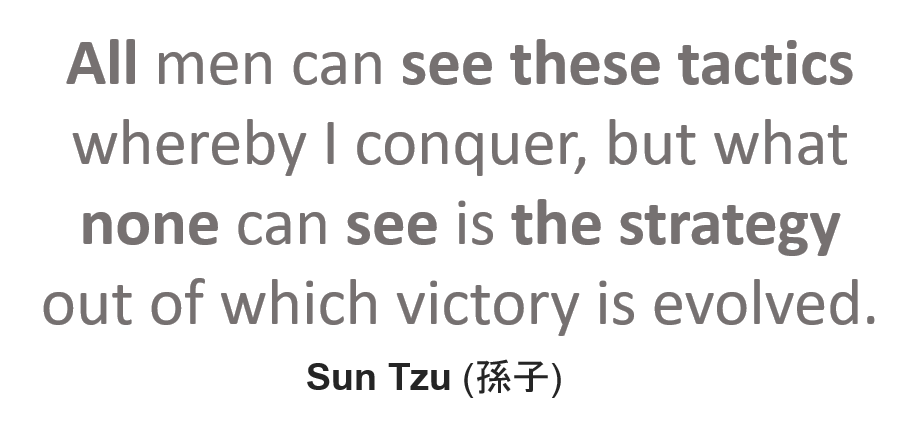
The word “strategy” is derived from the Greek word for the art of a military general. Although many authors have offered business definitions for strategy, none has received universal acceptance. Some examples from modern text follows.
Alternative definitions of Strategy
“Corporate strategy is the pattern of decisions in a company that determines and reveals its objectives, purposes, or goals, produces the principal policies and plans for achieving those goals, and defines the range of business the company is to pursue, the kind of economic and human organisation it is, or intends to be, and the nature of the economic and non-economic contribution, it intends to make to its shareholders, employees, customers and communities”
Andrews, 1997
Strategy is “a pattern in a stream of actions”
Mintzberg and Waters, 1985)
“Strategy, in effect, is management’s game plan for strengthening the organisation’s position, pleasing customers and achieving performance objectives”
Thompson and Strickland, 2011
“Strategy is the overall plan for deploying resources to establish a favourable position”
Grant, 2002
“Strategy is the pattern or plan that integrates an organisation’s major goals, policies and action sequences into a cohesive whole”
- Goals or objectives state what is to be achieved and when results are to be accomplished, but they do not state how the results are to be achieved
- Policies are rules or guidelines that express the limits within which action should occur
- Programs specify the step-by-step sequence of actions necessary to achieve major objectives
- Strategic decisions are those that determine the overall direction of an enterprise and its ultimate viability
James B. Quinn, 1980
Further on common differences between strategies and tactics.






